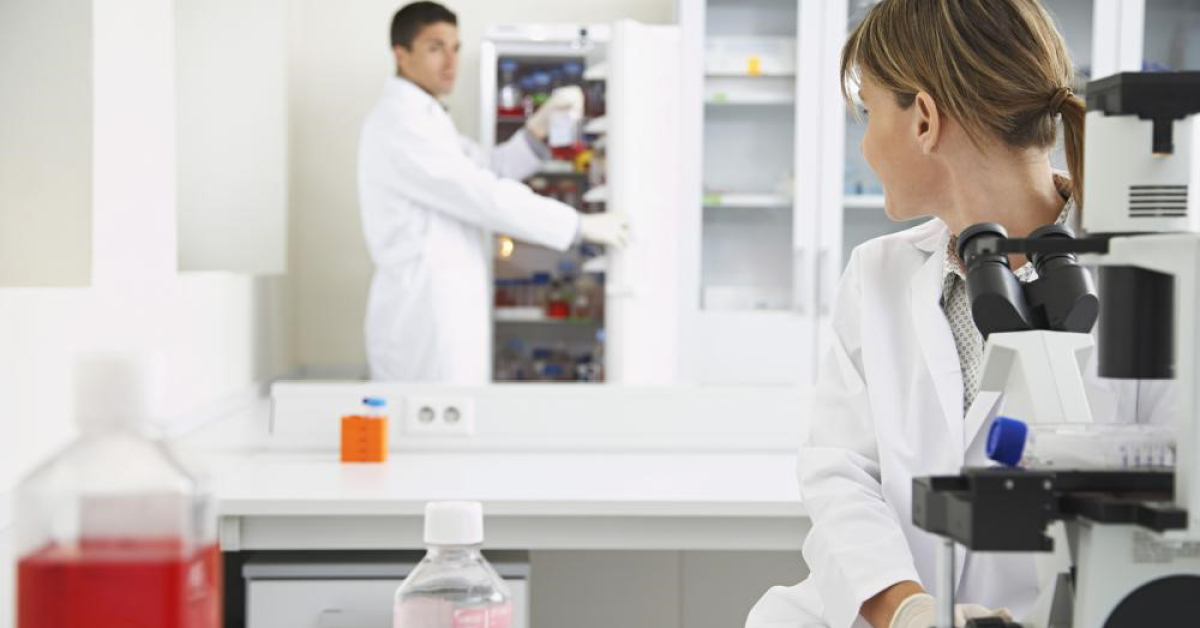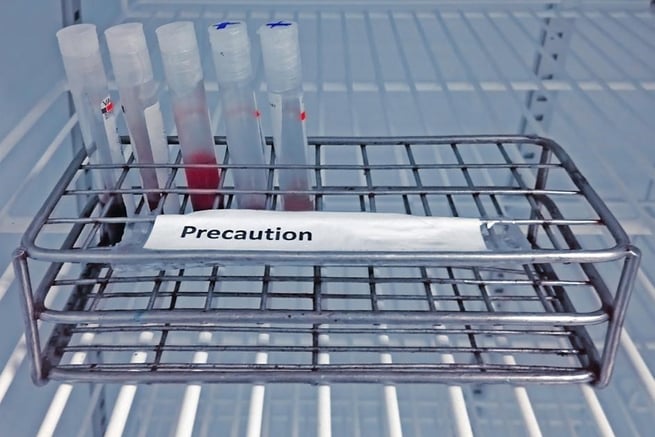Why Temperature Regulation is Important When Storing Pharmaceuticals

The global biomedical refrigerators and freezers market is predicted to amount to nearly 5 billion USD by 2026.
The reason why the pharma cold chain is a billion-dollar industry is simple: pharmaceutical and healthcare industries are required to deliver high-quality products. For that, they need state-of-the-art cold storage solutions to preserve biological samples and maintain their intended efficacy.
Pharmaceutical products require controlled storage to prevent drug degradation and contamination. Failure to store RNA, DNA, protein, PCR, and sequencing nucleotides, enzymes, antibodies, blood samples, etc. within specified environmental conditions can compromise quality and potency. Factors like temperature, light, air quality, and humidity can have a significant impact on the final product.
Additionally, failure to record and monitor these temperatures accurately can lead to inaccurate conclusions about the potential effects of medicines, putting their recipients in harm’s way.
Optimal Temperatures: What’s the Range?
To ensure the quality of pharmaceutical products throughout their shelf life, the CDC recommends that vaccines and drugs should be stored in temperature ranges from +2°C to +8°C.
Some insulin and biotechnology-derived products need to be protected from freezing. Even brief periods of sub-zero temperatures can lead to irreversible loss of efficacy. Therefore, lab technicians need to ensure the products are maintained at precisely controlled temperatures.
Proper Temperature Monitoring
Apart from investing in top-of-the-line laboratory refrigerators and freezers, it’s important that the temperatures of these units are monitored, ensuring the contents and preserved and protected.
For reliable temperature monitoring, our experts recommend data loggers that record the unit’s interior temperatures at user-specified time intervals and save the information to a thumb drive. This allows lab technicians to view temperature performance via spreadsheets and charts.
Temperature Fluctuations Can Lead To Financial Losses
An important aspect of biomedical refrigerators and freezers is that they minimize temperature fluctuations during door openings. When certain vaccines and medicines are stored in temperature ranges that fluctuate, the potency of the products may be affected, making them unsafe for use and causing irreversible damage to the entire product batch.
Once the quality is compromised, these drugs become useless and can cost the facility significant losses.

Shop BIO Freezers And Biopharmaceutical Refrigerators Online Today!
Our high-performance pharmacy refrigerators and ultra low temperature freezers are designed to offer high precision temperature control, quick cooling, and energy efficiency. Plus, they’re equipped with audible and visual alarms that alert the staff in case of significant temperature changes, or sensor, power, or door open failures.
Get in touch with our team for more information.
